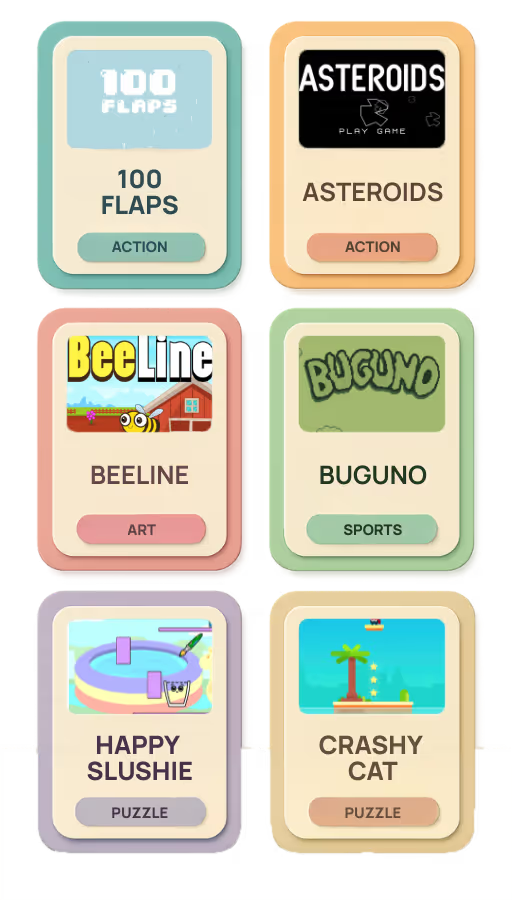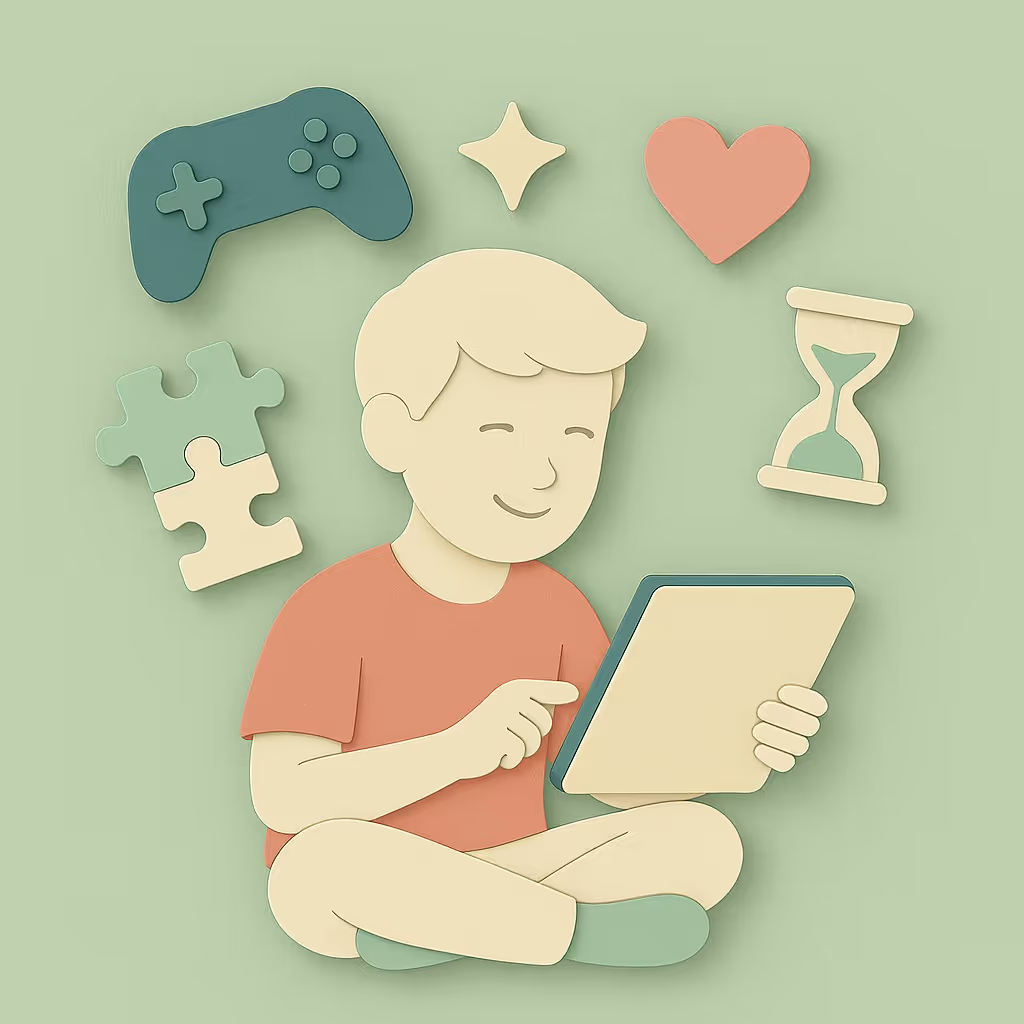These are games designed to be played alone, without the pressure of competition or social interaction. Each game offers a different challenge and you can choose games by difficulty level (easy, medium, advanced) and style (like “Action,” “Brain Game,” or “Art”). That means you can select the games that meet your client exactly where they are.
Here’s a quick snapshot of a few favorites:

There’s also space for quieter play with our Coloring Book, MatchThree, and Memory Game that each offer calming, repetitive engagement for clients who benefit from structure and predictability.
1. Self-Paced Exploration: Solo games let clients move at their own speed. There’s no time limit unless it’s built into the game, and even then, clients can pause or restart as needed. This creates a sense of safety and control which can be essential for client-centered care.
2. Focus and Flow: When a client finds a game they click with, they often enter a state of deep focus—sometimes called “flow.” This can reduce anxiety, increase concentration, and create a natural space for co-regulation in session.
3. Supports Skill Building: From visual-motor coordination to problem solving and emotion regulation, the therapeutic gains are often embedded in the gameplay. For example, a game like Pipes encourages patience, logic, and sequencing, while Headbutt involves timing, persistence, and adaptive frustration coping.
4. Accessible and Low-Stress: Not every client is ready to talk. Some feel overwhelmed, overstimulated, or just plain tired. Games offer a way to still “do the work” in a low-demand format. It’s therapeutic work in disguise.
Therapists might wonder: Aren’t games just a way to avoid the hard stuff? Not necessarily. Solo player games give us insight into a client’s problem-solving strategies, tolerance for failure, emotional regulation, and motivation which are all involved in the process of building rapport.
When used intentionally, games become bridges:
We are constantly brainstorming and developing new games, based on therapist feedback and clinical needs. Whether you're working with a child who needs motor skills support or an adolescent who shuts down in traditional talk therapy, there's a solo game that can help you meet them where they are and move forward together.

Lorem ipsum dolor sit amet, consectetur adipiscing elit, sed do eiusmod tempor incididunt ut labore et dolore magna aliqua. Ut enim ad minim veniam, quis nostrud exercitation ullamco laboris nisi ut aliquip ex ea commodo consequat. Duis aute irure dolor in reprehenderit in voluptate velit esse cillum dolore eu fugiat nulla pariatur.
Block quote
Ordered list
Unordered list
Bold text
Emphasis
Superscript
Subscript
.avif)